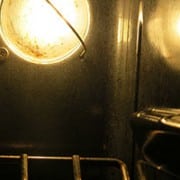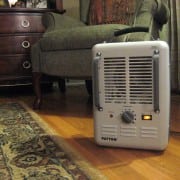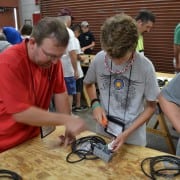Summer Safety Tips
When the weather gets hot, we head outdoors for sun and fun. Keep in mind some tips from the Electrical Safety Foundation International to make sure everyone has a safe summer.
Water and electricity don’t mix
Summer is the season for swimming and boating, and awareness of electrical hazards around water can prevent deaths and injuries. Water and electricity don’t mix.
- Sailboats often have masts of 30 feet or more, which are dangerous when they come into contact with overhead power lines. Look up as you get close to shore, and stay at least 10 feet away from overhead lines. Coming into contact with an energized power line causes serious and sometimes lethal electric shock.
- Use covers on outdoor power outlets, especially near swimming pools. Keep cords and electrical devices away from the water, and never handle electrical items before you’ve dried off.
- Use a ground fault circuit interrupter (GFCI) to help prevent electrocutions and electrical shock injuries. These devices interrupt the flow of power when they sense a surge. Portable GFCIs require no tools to install and are available at prices ranging from $12 to $30.
Lightning and storms
Lightning strikes are fatal in 10 percent of victims, and 70 percent suffer serious long-term effects, according to the National Weather Service. Because lightning can travel sideways for up to 10 miles, blue skies are not a sign of safety. If you hear thunder, take cover.
- If weather conditions indicate a storm, stay inside—away from doors and windows—or seek shelter in a low-lying area away from trees and any metal, including sheds, clotheslines, poles, and fences. If you’re near water, stay as far away as possible.
- If you’re in a group, spread out—don’t stand close together.
- Indoors, unplug electronics before the storm arrives, and don’t use corded phones.
- Avoid plumbing—sinks, bathtubs, faucets.
- Don’t forget about your pets. Doghouses are not safe from lightning, and chained animals are easy targets.
- If your home is flooded during a storm, don’t turn on appliances or electronics until given the okay by an electrician. If there’s laying water, don’t go inside. The water could be energized.
Working with large appliances
If your air conditioner goes out, keep a few things in mind before you start poking around. Large appliances, such as air conditioners, are responsible for almost 20 percent of consumer-product electrocutions each year.
- Understand your electrical system—know which fuse or circuit breaker controls each switch, light, and outlet.
- Make sure circuits are turned off before starting work and take measures to ensure they’re not turned back on while working.
- Use a circuit tester—always test before you touch.
Find more safety tips at esfi.org.










